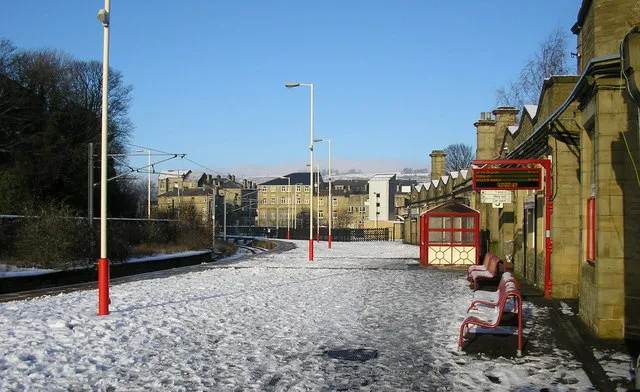 Shipley Train Station on Christmas Day. Photo: Stephen Armstrong
Shipley Train Station on Christmas Day. Photo: Stephen Armstrong
The rail unions are going on strike this Christmas, but Lindsey German argues that this is the government’s fault, not the workers’
1 The rail unions are striking over pay and conditions. Pay deals offered are 4% for each of two years which means a substantial pay cut when inflation at over 12% RPI and food inflation over 16%
2 If they win their claim that will help raise the wages of other workers as they will follow through with their own claims. The government is trying to scupper a deal because it knows this.
3 The unions are also fighting to stop further job cuts on the railways. They want to keep guards on trains and staff on stations.
4 This is a major question of safety obviously on the trains themselves but also in stations where isolated platforms and buildings are dangerous for women in particular.
5 Companies that charge exorbitant prices are refusing to provide staff who would help disabled and elderly, those with children, and give helpful advice and support to all passengers.
6 It is the companies and government who want us to put up with ticket machines, disembodied Tannoy announcements and locked waiting rooms – not the unions.
7 The railways always shut for two days at Xmas and run down services on Xmas Eve. That causes people a lot of inconvenience- but again this is the companies’ decision not the unions’.
8 So if people miss the Boxing Day sales or sports events this isn’t because of the strikes – they would never have travelled to them by train anyway.
9 The main reason many won’t travel by train around Xmas is the exorbitant cost of even off-peak trains.
10 The government wants to run down the railways and blame the workers. We shouldn’t believe anything the Tories or their lickspittle media say. Solidarity with the strikers.

